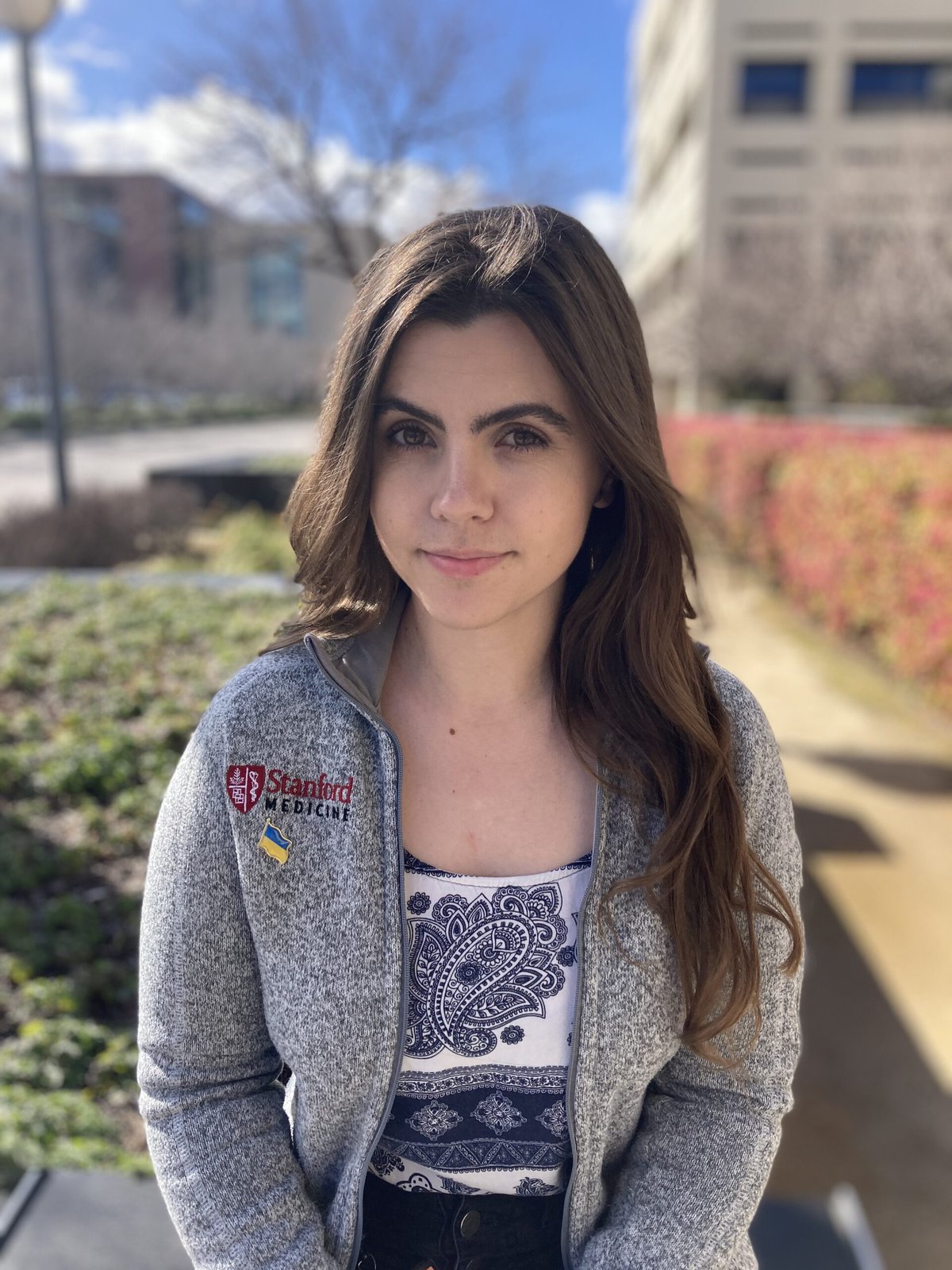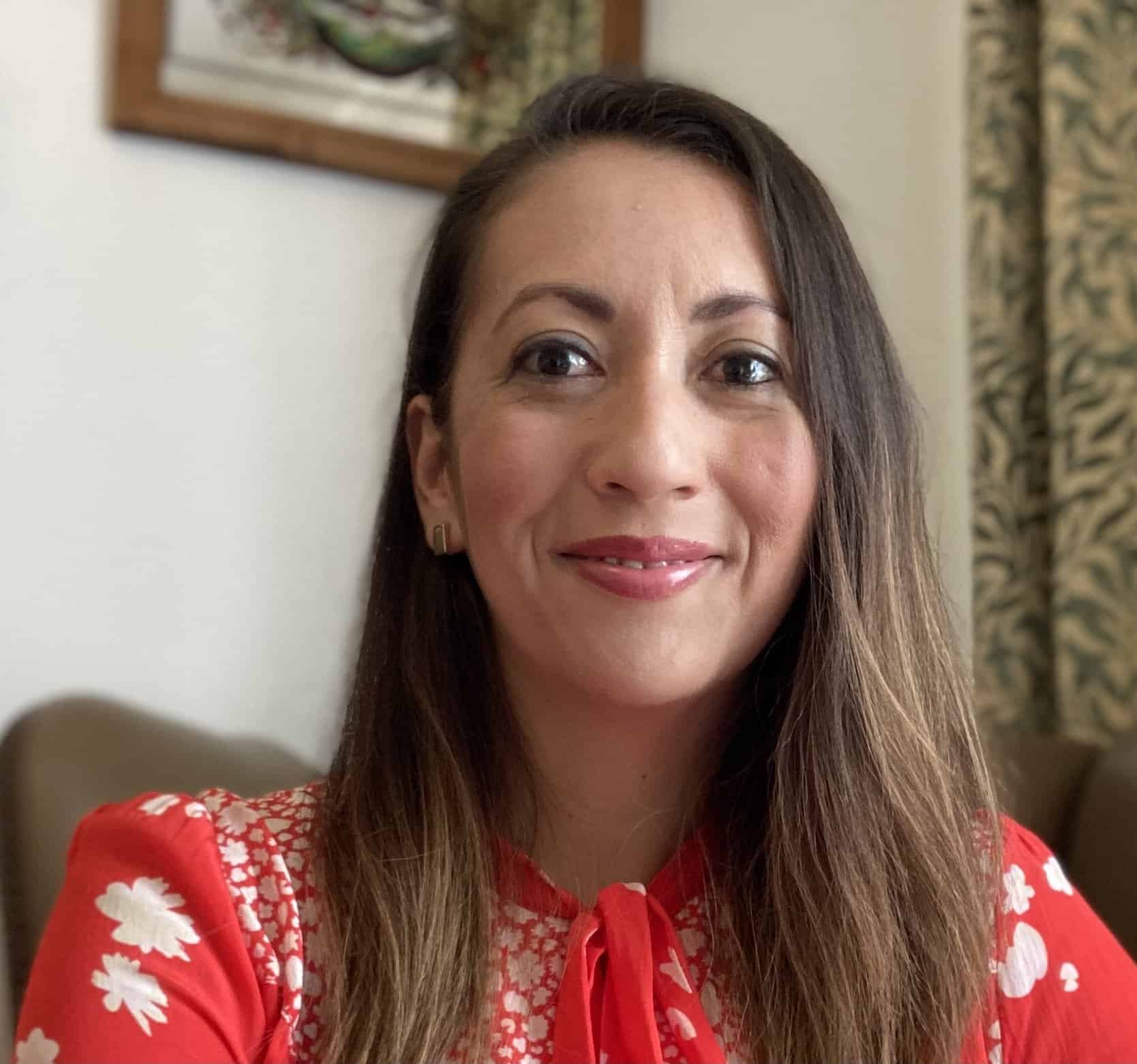

The Great Recovery is a series examining how a surge in innovation, outreach, access and attention to equity is improving our mental health system. It is supported by a grant from Wellcome Trust.
This is part one of a two-part story about how telehealth is bringing therapy to places where it is often difficult to access. Read part two: For Older Rural Folks, Telehealth Bridges the Mental Health Gap
After Russian armed forces moved on Kyiv in February 2022, Ivan (not his real name) decided that, despite the risks, he would fight to defend his city and his country.
He joined one of the volunteer groups working alongside Ukraine’s Territorial Defense Forces, trading gunfire with Russian forces using weapons supplied and distributed by the Ukrainian government. An ordinary civilian turned unlikely soldier, he never thought he would find himself on the front lines of what would become known as the Battle for Kyiv.
After an offensive lasting almost five weeks, Russian troops withdrew in the face of Ukrainian defiance. But for Ivan, a more personal battle was just beginning. His history of panic attacks and anxiety, which predated the war, came surging back. He began to experience trouble breathing if he ventured too far from his home near the Dnipro River, which passes through three countries and had become a key front line in the war against Russia.
That’s when he sought out TeleHelp Ukraine, a virtual health service co-founded by Stanford University medical student Solomiia Savchuk in April 2022. Over the course of around 12 virtual mental health support sessions, in which Ukrainian native Savchuk acted as an interpreter, Ivan was able to regain the ability to drive without suffering a panic attack. He learned breath and visualization exercises, and regularly drew graphs to numerically express how he was feeling on a particular day. As an avid cyclist, he felt most comfortable on a bike, and so would take cycling trips that allowed him to venture slightly further from the city and river each time, until he felt confident enough to get back behind the wheel of his car and drive longer distances.
Eventually, Ivan was able to drive far enough to visit his family, in time to meet his newborn grandson.
Now based in Los Angeles, Savchuk co-founded TeleHelp Ukraine to provide virtual health services to people in her home country, where, in many areas, the conflict with Russia has destabilized public health systems. Working with members of Stanford’s Ukrainian Students Association, she and her peers began recruiting providers, interpreters and volunteers across the globe, creating a network that has grown into a free, worldwide virtual health service that any Ukrainian with an internet-connected device can access. Nearly 16 months on, TeleHelp Ukraine has facilitated over 1,400 virtual consultations, from cardiology to neurology to reproductive health, in sessions often conducted by providers thousands of miles away.
Over 800 of those consultations have been specifically for mental health issues, an often invisible repercussion of the conflict. It is estimated that one in four Ukrainians — some 10 million people — may suffer from mental health issues because of the ongoing crisis, with more than 60 percent of Ukrainian soldiers said to be experiencing post-traumatic stress disorder (PTSD). The public health implications of this threaten to upend Ukraine’s social and economic stability while the war grinds on, and its ability to rebound after it’s over. As such, an array of parties, from international aid groups to Ukraine’s presidential office, are mobilizing to prevent what could become a nationwide mental health crisis.
Yet a crucial obstacle remains: Ukraine simply doesn’t have enough mental health providers, and those that it has, because of the war, can’t always get to the people who need help.
Amid this scenario, a solution has, as they say, entered the chat. As the Covid pandemic subsides, a medical landscape transformed by telehealth is emerging in its wake. Across the world, patients are meeting with doctors in the virtual realm for a host of reasons, from pain management to mammograms. And online therapy is no exception. The remote mental health market is estimated to have expanded by more than 27 percent over the past year. Now, through TeleHelp Ukraine, patients there are able to meet with mental health professionals in other parts of Europe, the US and beyond.
Perhaps unsurprisingly, mental health disorders run rampant in war zones. Rates of anxiety, depression and PTSD are up to three times higher among people exposed to armed conflict, and more than one out of five people living in these areas grapple with a mental health condition. Yet due to the very nature of conflict zones, mental health services in these places are often insufficient, disrupted or difficult to access.

“We’ve seen folks that have served in the military and on the frontlines, and in local volunteer groups,” says Savchuk. “We’ve had patients from the occupied territories. A ton of folks who have had their houses destroyed, have had to move to a small village somewhere in western Ukraine, and have found it tough to adjust. Sometimes these folks may have family members in the military and are working through the anxieties of that. Some are just dealing with previously diagnosed mental health conditions that they’ve been working through, and the war has just exacerbated them.
“This is a very challenging environment in which Ukrainians have to live through and continue to work and support themselves and their families, but with a war going on.”
TeleHelp Ukraine is part of a wider movement to mitigate these problems, and ensure Ukraine’s recovery from the war isn’t hindered by a lack of mental health resilience across the population. For example, the workforce development team of USAID has compiled a database of free psychological aid providers and resources all over Ukraine, and shared it with students and teachers at Ukrainian educational institutions. The World Health Organization is working with the Ukrainian government to provide mental health training to 10 percent of the country’s primary health workforce by the end of this year. And Ukraine’s First Lady, Olena Zelenska, has been at the forefront of a robust campaign aimed at “promot[ing] the formation of a culture of caring for mental health in society.”
“Against the background of daily alarming news, missile attacks, human grief and trouble, it doesn’t seem appropriate to ask yourself ‘How are you?,’” the First Lady said in a statement. “But in fact, psychological well-being and understanding of what is happening in our inner world is more timely than ever.”
“The leadership of Ukraine is very aware of how critical and essential the mental health of the nation is to the victory,” says Savchuk. “If you want to help Ukraine, which every Ukrainian does, you have to maintain that capacity and strength. The government is supporting multiple initiatives to bring awareness to mental health and to create the infrastructure for folks to be able to access it. We hope we are part of that puzzle.”
Weighed down by negative news?
Our smart, bright, weekly newsletter is the uplift you’ve been looking for.Ironically, the war may ultimately help catalyze a broader positive shift toward mental health, increasing awareness and reducing stigma among the public. Before now, discussing mental health was somewhat taboo in Ukrainian society, and just two percent of Ukrainians polled last year planned to seek professional support. But seeing popular, influential figures like First Lady Zelenska talk about the issue may be changing that. Savchuk and her team have seen bookings steadily increase as word continues to spread across the country.
“For a lot of these folks, this might be the first time they have sought mental health support, and we might be their first encounter with that,” says Savchuk. “What we see among veterans especially is that they sometimes see [seeking support] as a sign of weakness, and see it as their duty to help themselves, and just aren’t used to accepting help in that way. So this is something to work through.”
For the providers working with TeleHelp Ukraine, speaking with patients who are in a war zone can be challenging in its own way. When a video consultation suddenly cuts out, is it simply because of an unstable internet connection, or something more dangerous?
Dr. Anaid Atasuntseva, a clinical instructor at Stanford University’s Department of Psychiatry and Behavioral Sciences, who has been a volunteer therapist with TeleHelp Ukraine from its inception, has experienced this. She recalls a session with a Kharkiv-based ADHD patient that cut out halfway through the call, just as they were going through an organizational skills exercise.
“An explosion happened near his house. I could see a flash of light, then everything went dark. In those moments, you anticipate the worst. Thankfully, we have a wonderful staff of health navigators and other volunteers who are there to reach out to the patient and make sure they’re okay. So I learned very quickly from them as they were able to contact him that everything was fine,” says Dr. Atasuntseva.
Then there’s the language barrier. Treating people through an interpreter in another language is a new experience for many therapists, though Savchuk notes that the language barrier has hardly been a barrier at all.
“We were worried at first about how well our services would work with an interpreter. But what our data seems to reveal is that there isn’t a difference in the degree of satisfaction that the patients have if they had an interpreter present versus if they had one with a provider who speaks their language.”
“We’ve heard from patients that the interpreter becomes an extra source of support in the room,” Savchuk continues. “They’re not necessarily a bridge they have to go through to get to talk to the provider, but rather, it becomes a three-way team where they are all working together to get the patient on a path to recovery.”
Of Russian and Armenian heritage, Dr. Atasuntseva speaks Russian, but is mindful that while many Ukrainians also speak Russian, they may not necessarily want to in their sessions.
“There’s a big movement to take back a lot of Ukrainian culture and focus on speaking Ukrainian. And at the same time, just because of the past colonization of Ukraine by Russia, a lot of older adults predominantly speak Russian,” she says.
“If anyone prefers me not to speak Russian, understandably, then I will just speak English and we’ll have a translator, or it’ll be a mix of them speaking to me in Ukrainian, me speaking to them in Russian and the translator filling in. But many patients in their twenties and thirties are fluent in English, so they actually want to practice it.”
Dr. Atasuntseva has treated around 40 patients in Ukraine, between six and 70 years old, for a range of issues: PTSD, suicidality, obsessive compulsive disorder, depression, anxiety and self-harm. Typical behavioral issues in children, like tantrums, nightmares and aggression, have been exacerbated by the war.
Across the board, the most common technique she teaches patients is a form of behavior therapy called the “TIP skill.” It includes cooling the face with ice or cold water to lower body temperature, blood pressure and heart rate, as well as a short burst of intense exercise which initially raises the heart rate, but then sends it back down. It also involves deep breathing, and tensing and relaxing different muscle groups.
“It is actually a way to tip or change your body chemistry, when your nervous system is activated or over regulated, and you feel like that emotion is just too big to handle or you feel you’re maybe going to act on an urge that’s problematic or will make things worse,” she says.
Despite Savchuk and her team’s efforts, international aid may need to be scaled up to stably provide mental health care to the 50 percent of Ukrainians estimated to need professional help. Aid will also be needed to help fill the hole created by the displacement of Ukraine’s own mental healthcare workforce throughout the conflict. Dr. Atasuntseva even sees TeleHelp Ukraine as a blueprint for how mental health support services can be delivered all over the world — not just in war zones, but to address the gaps in access to care that exist due to lack of resources and finances.
Until then, TeleHelp Ukraine will keep signing up volunteers and providers to keep the support flowing. It is also adding mental health services to the mobile clinics established in May to help people in remote villages close to the frontlines that have been entirely disconnected from all healthcare.
“Branching into mental health is a lot tougher as we are hosting appointments in the back of a van, but we hope to grow into that because we think this is where that need is the most severe,” says Savchuk.
For Savchuk, bringing mental health care to war-torn Ukraine has been a way of shifting her own mindset. “You see how life does go on, and you can improve and grow, even as you’re helping your country fight a war that we didn’t start and didn’t want.”





